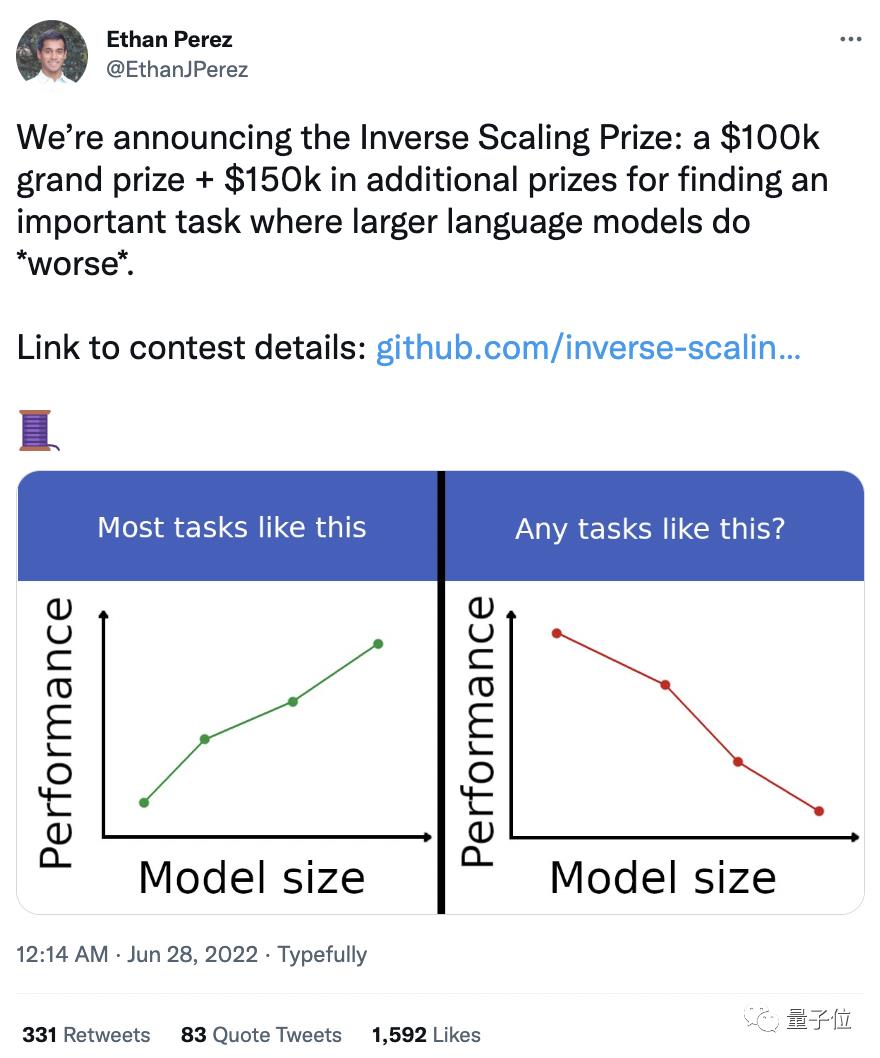[重金悬赏]求英语演讲稿一篇
Posted
tags:
篇首语:本文由小常识网(cha138.com)小编为大家整理,主要介绍了[重金悬赏]求英语演讲稿一篇相关的知识,希望对你有一定的参考价值。
求英语演讲稿一篇,大标题是"Character":in the inner battle between the self and the obligation. People who have character will lean toward obligation.这就是主题.时间三分钟左右.万分感谢!!
这个貌似不是主要讲character的,是obligation(责任)和self(自我)之间关于character的关系,请看清题目..
补充:
希望能有更多的朋友回答..
If you're lucky, people will judge you by your character and not just by your appearance, but what do people mean by "character"?
Your character is the sum of all the qualities that make you who you are. It’s your values, your thoughts, your words, your actions. When admissions counselors review your application, your activities and interests give them a glimpse into your character.
Below are many attributes that contribute to your individual character. Building on these elements can help give you a stronger character and make you a more attractive prospect as a potential student.
ATTITUDE – Your attitude is the way you feel about particular events or situations. It shows in your words and in your actions. Why is it important to have a positive attitude toward school, and your family, and your friends? Do you surround yourself with people who have a positive attitude?
AWARENESS – Awareness means knowing what is going on around you. It involves all kinds of things, like the weather, or a sports activity, or a friend who is going through some tough times. Are you aware of things happening around you? What can you do to increase your awareness at school, at home, or with your friends?
CARING – Caring means being interested or concerned about someone or something. It’s easy to see that your family and friends care about you. But what about other people in your life? Who are some people you are around every day who care about you and want you to do well? Do YOU care about those people in return?
CHARACTER – Your character is the sum of all the qualities that make you who you are. It’s your values, your thoughts, your words, your actions…in other words, it’s YOU. Like it or not, you will often by judged by your character. Why is it important that you develop strong character traits? What are some situations in which your character might shine?
CITIZENSHIP – Citizenship is the way you conduct yourself within a community, such as the town you live in or the school you go to. Good citizens give back to that community by doing things that make it better, while poor citizens try to tear it down. What are some things you could do to show good citizenship in your school? What actions would be examples of poor citizenship in the town or city you live in?
COMMITMENT – A commitment is an agreement or a pledge to do something in the future. It’s like a promise, and when you commit to something you are giving your word that you will do it. What are some examples of commitments you have made? What are the consequences of not honoring a commitment?
COMMUNICATION – Communication is the means by which people exchange information. The people who get ahead in life are the people who can communicate. What are the different forms of incoming communication (the ways you receive information) and outgoing communication (the ways you give information to others)? Why is it important to develop ALL of your communication skills?
COMPASSION – Compassion is an awareness of other people’s problems and a desire to help. It can involve your family, your friends, or total strangers. Do you consider yourself to be a person of compassion? What are some situations in which you have shown compassion?
CONFIDENCE – Confidence is a feeling of belief, or of being certain of something. It’s also called self-esteem. Being confident in yourself and your abilities is very important to your success in school and in life. What are some things that you feel very confident about? In what areas of your life do you lack self-confidence? What are some things that could make you feel more confident in yourself?
CONSIDERATION – Consideration means being thoughtful of the rights and feelings of others. It means treating people the way you would like them to treat you. Can you think of any people who are not considerate in how they treat you? Now think about how you treat them…do you think they would be more considerate toward you if YOU were more considerate toward THEM?
COOPERATION – Cooperation is the ability and willingness to work with others. There aren’t many things you can accomplish totally by yourself – it takes cooperation to make things happen. What are some ways in which you can cooperate with your teachers to do well in school? How can you cooperate with your parents on things that go on at home?
COURAGE – Courage is not the absence of fear – it is the ability to face your fear. It takes courage to do lots of things, like playing a new sport, trying out for a part in the school play, or giving an oral report in front of the whole class. Why is it important that you show courage when facing new challenges? Can you think of a situation in which you had to show courage?
COURTESY – Courtesy is a show of respect and consideration for others. Sometimes people show "common courtesy" to strangers and old people, but show no courtesy to the people who are closest to them, like friends and family. Have you recently shown a lack of common courtesy to a family member or a friend? What should you do to correct the situation and prevent it from happening again?
CREATIVITY – Creativity means coming up with new thoughts or ideas, or new ways to do things. It could be a new hair style, a new way to decorate the gym for a dance, or a new way to run a boring old drill at soccer practice. What are some ways in which you have been creative lately? How will creativity help you later in life when you go off to work?
DEPENDABILITY – Dependability means people can count on you. It means you follow through on your promises and do the things you say you are going to do. When was the last time someone let you down? Do you remember how that made you feel? What does it say about your character if you lack dependability?
DILIGENCE – Diligence means sticking to a task until it is completed or mastered. Some people call it stick-to-it-ive-ness! It could involve homework, learning to play the piano, shooting three-pointers, or any other task you are trying to be good at. What are some things you are working on that require diligence? How will diligence help you once you get into high school or college?
DISCIPLINE – Discipline doesn’t just mean punishment. When we’re talking about character, it means self control. If you have discipline, it means you take control of your own actions. Why is self-discipline important to your success at school, at home, and in your outside activities? Can you think of a recent example in which you did NOT show good self-discipline? How did that situation turn out?
EFFORT – Effort is your willingness to try. It’s easy to put a lot of effort into things you like and things you’re good at. What’s hard is putting effort into things you DON’T do well. But that is where you effort is needed the most! In which school subjects are you putting most of your effort? Which subjects could use a little more effort on your part?
ENTHUSIASM – Enthusiasm is the level of excitement you feel about something. Your enthusiasm shows that you are interested and that you care. Having enthusiasm for certain subjects or activities can lead you toward long term goals or your chosen career. What are you enthusiastic about? How could your enthusiasm create opportunities for you later in life?
FAIRNESS – Fairness has many meanings, like doing the right thing, treating people the way they should be treated, and being impartial (not taking sides). You’ve heard the expression "Life isn’t fair", and sometimes it’s true. But sometimes it might be YOU who is being unfair. Can you think of a time when you treated a friend or family member unfairly? If you could do it all over again, what would you do differently?
FOCUS – Focus means concentration. It involves paying attention and avoiding distractions. Whether you’re learning geography or guitar or basketball, staying focused is an important part of learning. Can you identify some things that cause you to lose focus when you are studying? How can you create a study environment that will help you to stay focused?
GENEROSITY – Generosity is the act of giving. Often it means giving up money or possessions. But it can also mean giving time, or a listening ear, or kindness, or a smile, or just about anything. So you see, you don’t have to be rich to be generous – we ALL have things we can give. In what ways do you show generosity in your everyday life? How are other people generous toward you?
HONESTY – Honesty is truthfulness. It means you are not going to lie or cheat or steal. Honesty is one of the building blocks of strong character, and it is something you display every day of your life. Do you think of yourself as an honest person? Do you think other people consider you to be honest? Is it ever OK to NOT be honest with people?
HUMILITY – Humility means being humble, or not thinking that you’re "all that"! It’s important for you to be confident about yourself. But going too far means you’re cocky, and that’s not a good thing. Humility makes you believe that there is still more you can do to learn and improve. Do you know someone who could use a dose of humility? Have you ever gone a little overboard and forgotten about being humble?
INITIATIVE – Initiative is your ability to get going. It’s that drive that gets you started on doing your homework, or mowing the grass, or cleaning your room. It’s also what helps you get others moving on things, like starting a group project at school or getting the team to start warming up before baseball practice. Among your friends, which ones show initiative? Do you show initiative in doing things you are responsible for?
INTEGRITY – Integrity is like a code of honor. If you have integrity, it means that you have certain values and beliefs that you live by. It also means you respect the values and beliefs of others. Integrity is a lot like honesty – it’s one of the building blocks of character. Who are some of the adults in your life who have a lot of integrity? Can you think of any celebrities who are rich and famous but seem to LACK integrity?
KINDNESS – Kindness is just a matter of being nice. Nice to people, nice to animals, nice to nature, nice to other peoples’ property…you know, just being NICE. It sounds so simple, but sometimes people are so wrapped up in themselves and their own problems that they stop being kind to each other. Do you make a habit of being kind? What are some things that you can do to help spread kindness in your school?
LEADERSHIP – Leadership means taking charge or setting an example for others. You don’t have to be the smartest student or the best athlete or the most popular kid in school to be a leader. Anyone can be a leader – you just need good work habits and strong character. What are some of the character traits of a good leader? How can YOU be a leader at school, or on your team, or in your outside activities?
LOYALTY – Loyalty is faithfulness. It means standing by someone even when times get tough. Loyalty is an important part of friendship. Just be sure that you don’t show "loyalty" to a friend by doing something that you KNOW is wrong. A true friend would never put you in that position. Has a friend ever questioned your loyalty? What are the consequences of doing something that you KNOW is wrong?
MOTIVATION – Motivation is something that causes you to take action. It’s a feeling or event that gets you moving. People who are motivated have a better chance of reaching the goals they set for themselves. What are some of the things that motivate you? What are some things that you just can’t seem to get motivated to start on?
OPTIMISM – Optimism means having a positive outlook on things. It means thinking that things are going to turn out well. People who are optimistic usually plan ahead and prepare for the things they are about to do, and sometimes that helps things turn out well. Why is it good for you to be optimistic? What are some things you can do to help a friend who always seems "down" and lacks optimism?
PATIENCE – Patience is the ability to wait for things without whining or complaining. It is a quality that many people do not have, and it can take a long time to develop. You might want something NOW, but sometimes you have to be patient and wait. Who is the most patient person in your home? What are some ways in which you have been impatient lately?
POLITENESS – Politeness means speaking and acting in a civil way and using good manners. It’s a lot like courtesy and kindness. Another way to put it is being "not rude". Being polite means you know how to act in social settings like a banquet or a big family gathering. What are some phrases you would use when you are speaking politely? If someone is polite to you, does that also mean they are being honest with you?
RESOURCEFULNESS – Resourcefulness is the ability to find a way to get things done. It means you can figure things out even if the answers aren’t right there in front of you. If you are resourceful, you will be more successful in school and in your chosen career. Can you think of some ways that you have been resourceful in solving a problem or getting something done? How will resourcefulness help you in your career?
RESPECT – Respect means showing regard for other people’s feelings or possessions. It is an attitude that you display every day. Showing respect for others is very important in the way you relate to people, and it is a HUGE part of your character. What are some ways you can show respect for your teachers during class? What are some of the harmful things that can happen when people show disrespect for others?
RESPONSIBILITY – Responsibility is what you are showing when you own up to something. When you are responsible, you take control of your actions and your obligations. It might also mean taking the blame for something that is your fault rather than pointing the finger at someone else. Do you accept responsibility for your actions? In what ways do you need to start becoming more responsible?
SINCERITY – Sincerity means being real and genuine – not fake. It means speaking or acting "from the heart" and really meaning it. Sincerity is often the basis of very strong friendships, because you know that person is being real with you. What is the difference between sincerity and politeness? Have you ever been polite to someone and then realized that you were not sincere?
TEAMWORK – Teamwork means working together to achieve a common goal. The goal could be having a winning football team, putting together the coolest project for science class, or having the band sound better than ever! Teamwork can lead to great things, but everyone has to do their share. Are you a "team player"? What can you do if someone is not working hard enough to help the team succeed?
TOLERANCE – Tolerance is your ability to accept values, practices, or beliefs that differ from your own. It also means accepting people who come from different places and have different backgrounds. You will need to be tolerant as you explore the world and meet new people. Do you tolerate different views, opinions, and beliefs? How do you handle being the "odd man out" when you feel like you’re different from everyone else?
TRUSTWORTHINESS – Trustworthiness means you are worthy of someone’s trust. People know they can trust you and believe in you because of the kind of person you are. People who are trustworthy are often given a lot of responsibility because they can get the job done. Who is one of the most trustworthy people you know? What are some ways that you can show your parents that you are trustworthy?
参考资料:http://www.educationplanner.com/education_planner/discovering_article.asp?sponsor=2859&articleName=Character_Development
参考技术A Let me begin by welcoming back my faculty and staff colleagues, those gifted and dedicated women and men who will become your mentors, friends, and helpers during the next four years. Also, welcome back to our trustees, who serve this place faithfully, thoughtfully, and selflessly. And, finally, good evening ‘007, and welcome to this community of scholars.I have been reflecting for several months on what I should say to you on this important occasion. The great temptation to someone of my age, when called upon to address a large group of people your age, is, of course, to preach virtue. I daresay I will give in to that temptation before we leave here this evening, but let me begin with the hope that I can provoke reflection, and provide food for thought that you will find sustaining over the next four years.
Why are you here? “Well,” you might reasonably answer, rolling your eyes at my obtuseness, “to get an education of course.” But that is not the question I ask. My question is “Why are YOU here?” Why you and not someone else? Of course, you have worked hard in school, you have been ambitious, you have taken your education seriously. Undoubtedly, your parents or other family members nurtured your curiosity and intellectual gifts from an early age.
Consider, however, that there are more than 15,000 four-year institutions of higher education in this world. Only 2,300 of these are in the United States, which is generally considered to have the best system of higher education on earth. And you are now enrolled at Muhlenberg College, which is generally ranked in the top 3% of this country’s colleges and universities for academic quality – in the top 1% of the colleges and universities in the world. Consider that less than 1% of your age cohort enjoys this privilege. And finally consider that your education, while expensive, is heavily subsidized by others. Almost two thirds of you receive some form of financial aid. Even if your family is paying full tuition at Muhlenberg this year, the true cost of your education is substantially more – in fact almost $4,000 more each year than the amount you are asked to pay. Muhlenberg alumni who have gone before you, and other philanthropists have apparently believed that you are the best investment they can make in the future of our society and the world.
Perhaps now my question does not seem so obtuse. Why are YOU here? Did you really work harder, are you really smarter, than 99.9% of the 18 year olds in the Americas, in Europe, in Asia, and elsewhere on planet earth? Is it possible that an equally or perhaps even more important factor has been pure dumb luck? Or, if you are like most members of the Muhlenberg community and assume that our lives are not simply a series of random events, you may believe that divine providence has played a role in where you sit this evening. And if that is the case, why has providence given you this astounding gift? What path are you destined to follow – through these four years and the rest of your time on earth?
You have almost certainly heard, at some point in your life, the maxim that “From everyone to whom much has been given, much will be required.” You will find it quoted widely and attributed variously to Oliver Wendell Holmes, John F. Kennedy, and to others. In fact, it is from the New Testament (Luke 12:48). But whether you are Christian, Jew, Muslim, or from another faith tradition, these words are worth remembering in your present circumstances. Much is being given to you. What will you do with that gift?
I am, by vocation and by avocation, a student of the ancient world, and when confronted by deep questions I often turn to the wisdom of the ancients. In this regard, I am reminded of the words of the pre-Socratic philosopher Heraclitus of Ephesus, who wrote, some 2500 years ago: “Character determines destiny.”
“ Character determines destiny.” In other words, it is not what happens to us that matters, it is what we are able to make of our experiences. Good health and a fine education mean nothing if you are not capable of putting them to good use. Character is the factor that enables you to treat an academic failure or a defeat on the athletic field as an opportunity to learn and grow rather than an occasion of humiliation. Character can drive you to push your intellectual limits instead of settling for less than your potential. Character gets you up and moving even when you are weary or tempted to relax because you know that you still have more to give before you have achieved your best. And character determines whether you will take the risk of exposing your vulnerabilities to others in pursuit of honest relationships, or dwell constricted within a carapace of cynicism, pride, and, ultimately, loneliness.
But if “character determines destiny”, what determines character? Some neuroscientists would argue that character is genetically determined, that it is hardwired. If they are right, and if Heraclitus is right, then free will is an illusion. I do not believe this. And I invite you to join me in my disbelief.
The German poet Goethe once wrote “Talent develops in quiet places, character in the full current of human life.” These words came to mind recently as I reflected on the challenges and opportunities that lie before you. In an increasingly clamorous world, Muhlenberg’s beautiful campus does provide a relatively quiet haven where your talent can be nurtured. In the long history of a college that has always been devoted to teaching, your class has the greatest intellectual and leadership potential of any group ever to grace the campus. Our faculty today are as dedicated to teaching as any in Muhlenberg’s history. The conviviality and intellectual vitality of this place have never been more conducive to learning than they are today. Yet this is no ivory tower, and despite what you may hear from upperclassmen, there is no “Muhlenberg Bubble” that insulates you from “the full current of human life.” You will find ample opportunities to sample the full range of temptations and moral choices both on and off the campus. We live in the third largest city in Pennsylvania, a city distinguished by beautiful parks, dedicated public servants, civic and religious leaders, philanthropists and good Samaritans, but also replete with poverty, overextended social services, and all the other ills that characterize urban life. I hope that you, like approximately 80% of Muhlenberg students, will seek out opportunities for volunteer service in this community. That you will find ways to make a difference in the lives of those less fortunate, who have, through no fault of their own, been denied access to the extraordinary educational experience and rich possibilities that now lie before you.
Each of us determines our own character. Inevitably, you will shape your character with every single decision you make. Whether you decide to help others or indulge yourself, whether you hone your analytical gifts through constant use or dull them with intellectual compromise, whether you choose to exhaust yourself stretching the limitations of your energy, knowledge, and compassion, or “kick back” and deaden your senses, you are determining your character – and your destiny. Whether you utilize them wisely or foolishly, your choices over the next four years will set you on a path that either justifies the investment that others have made in your potential, or mocks that investment.
Let me close with a favorite quotation from Homer’s Iliad, which expresses, better than I ever could, your current situation. The scene is set on the plains of Troy, just before a momentous battle is to be joined. Sarpedon, Lord of Lykia and son of Zeus, speaks to his best friend Glaukos on the obligations of privilege:
Glaukos, why is it that you and I are honoured before others
With pride of place, the choice meats and the filled wine cups
In Lykia, and all men look on us as if we were immortals ? . . . .
Therefore it is our duty in the forefront of the Lykians
To take our stand, and bear our part of the blazing of battle,
So that a man of the close-armoured Lykians may say of us:
‘Indeed, these are no ignoble men who are lords of Lykia, these kings of ours, who feed upon the fat sheep appointed and drink the exquisite sweet wine, since indeed there is strength of valour in them, since they fight in the forefront of the Lykians.’
Man, supposing you and I, escaping this battle,
Would be able to live on forever, ageless, immortal,
So neither would I myself go on fighting in the foremost
nor would I urge you into the fighting where men win glory.
But now, seeing that the spirits of death stand close about us
In their thousands, no man can turn aside nor escape them,
Let us go on and win glory for ourselves, or yield it to others. 参考技术B http://www.360kt.com/html/yanjianggao/youxiuyanjiangfanwen/2006/1014/4762.html
我对英语也不怎么通
就找了一篇名叫 Youth 的演讲稿
给你参考一下本回答被提问者采纳 参考技术C 不好意思,理解不是很好.能不能再解释一下?
AI表现越差,获得奖金越高?纽约大学博士拿出百万重金,悬赏让大模型表现差劲的任务...
羿阁 发自 凹非寺
量子位 | 公众号 QbitAI
模型越大、表现越差反而能获奖?
奖金总计25万美金(折合人民币167万)?
这样“离谱”的事情还真就发生了,一个名叫Inverse Scaling Prize(反规模效应奖)的比赛在推特上引发热议。

该比赛由纽约大学的7位研究人员共同举办。
发起人Ethan Perez表示,本次比赛的主要目的,是希望能找到哪些任务会让大模型表现出反规模效应,从而找出当下大模型预训练中存在的一些问题。
现在,该比赛正在接收投稿中,第一轮投稿将截止到2022年8月27日。
比赛动机
人们似乎默认,随着语言模型越来越大,运行效果也会越来越好。
然而,大型语言模型并非没有缺陷,例如种族、性别和宗教偏见问题,以及产生一些模糊的错误信息等。

规模效应表明,随着参数数量、使用的计算量和数据集大小的增加,语言模型会变得更好(就测试损失和下游性能而言)。
我们假设有些任务的趋势是相反的:随着语言模型的测试损失的提高,任务性能变得单调、效果变得糟糕,我们将这种现象称为反规模效应,与规模效应相反。
本次比赛旨在寻找更多的反规模效应任务,分析哪些类型的任务容易表现出反规模效应,尤其是那些对安全性要求高的任务。
同时,反规模效应任务还将有助于研究当前语言模型预训练和规模范式中潜在的问题。
随着语言模型越来越多地应用于现实世界的应用程序,这项研究的现实意义也在增强。
对反规模效应任务的收集,将有助于降低大型语言模型带来不良后果的风险,并预防伤害到现实用户。
网友争议
但针对这项比赛,有些网友提出了不同的看法:
我认为这是一种误导。因为它假设模型是静态的,并且在经过预训练后停止。
这更多的是一个在参数更多的标准语料库上进行预训练的问题,而不是模型大小的问题。

软件工程师James对该观点表示赞同:
是的,这整件事都是骗局。任何小型模型可以学习的东西,大型模型也可以。
小模型的偏差更大,因此“热狗不是热狗”在小模型中可能被识别为100%对的,而当大模型认识到可以将蛋糕制作成类似于热狗时,准确率会下降到 98%。

James甚至还进一步提出了“阴谋论”的看法:
也许这整件事就是一个骗局——让人们努力干活,并且展示遇到棘手任务时的训练数据,该经验会被大型模型所吸收,大型模型最终会更好。
因此他们不需要给奖金,还会得到一个更好的大型模型。

对此,发起人Ethan Perez在评论里这样写道:
澄清一下,该奖项的重点是寻找会导致反规模效应的语言模型预训练中,从未或很少见过的类别。
这只是使用大型模型的一种方法。还有许多其他能导致反规模效应的设置,没有涵盖在我们的奖项里。

比赛规则
根据参赛者提交的任务,赛方将会构建一个包含至少300个示例的数据集,并使用GPT-3/OPT进行测试。
该比赛的评选将由一个匿名评审小组来完成。
评审们将从反规模效应的强度、通用性、新颖性、再现性、涵盖范围以及任务的重要性6个方面考量,对提交作品进全方位的审核,最终评出一等奖、二等奖和三等奖。
奖金设置如下:
一等奖最多1位,10万美金;
二等奖最多5位,每人2万美金;
三等奖最多10位,每人5000美金。
比赛已于6月27日开始,8月27日将进行第一轮评估,10月27日开始进行第二轮评估。
发起人Ethan Perez

发起人Ethan Perez是一名科学研究人员,一直致力于大型语言模型的研究。
Perez在纽约大学获得自然语言处理专业博士学位,此前曾在 DeepMind、Facebook AI Research、Mila(蒙特利尔学习算法研究所)和谷歌工作过。
参考链接:
1、https://github.com/inverse-scaling/prize
2、https://twitter.com/EthanJPerez/status/1541454949397041154
3、https://alignmentfund.org/author/ethan-perez/
— 完 —
「量子位·视点」直播报名
什么是“智能决策”?智能决策的关键技术是什么?它又将如何打造引领企业二次增长的“智能抓手”?
7月7日周四,参与直播,为你解答~

点这里👇关注我,记得标星哦~
以上是关于[重金悬赏]求英语演讲稿一篇的主要内容,如果未能解决你的问题,请参考以下文章